
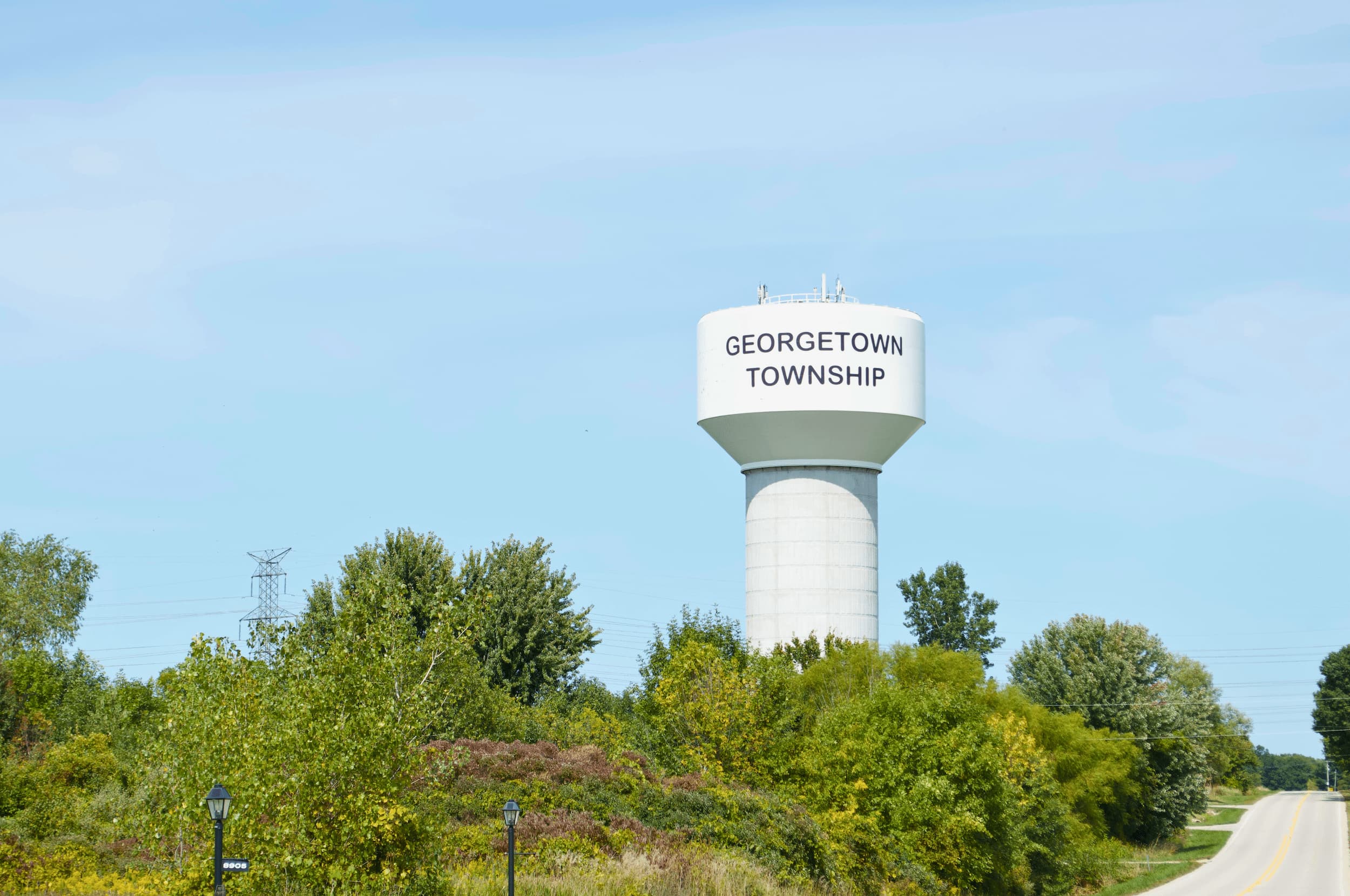
According to Georgetown Township Superintendent Justin Stadt, a new water main needs to be put in. And the only reason there’s a need for a new water main is for the irrigation of lawns. Without a rate increase to cover the cost, the township would need the government to subsidize the water.
In addition to the added cost for Georgetown Township's (GT) new water main, the City of Wyoming—where GT gets its water—raised its rates in response to upcoming infrastructure improvements and the need for increased capacity due to growth in areas such as GT.
Though the City of Wyoming serves several cities and townships in Kent and Ottawa County, GT takes up 15-21% of the supply, particularly in summer months. After conducting a water reliability study in 2023, the City of Wyoming found that the water system is rapidly heading toward unsustainable capacity levels.
Jaime Fleming, Superintendent of the Drinking Water Plant for the City of Wyoming, said that GT is a growing community with high volume demand, especially during the summer, and that these factors affect the Wyoming portion of their rate the most.
Superintendent Stadt explained that the total cost coming to the City of Wyoming’s municipalities currently is planned out at $600 million, of which GT right now is responsible for 42%
Broken down to the gallon, GT residents went from a rate of paying $3.15 per 1000 gallons to $4.90 per 1000 gallons starting July 15, 2025. That is a 55.6% increase.
The choice before the Georgetown residents: continue their normal water usage and pay the new rate or cut back on their water usage to pay less and potentially lessen the need for the new water main.
On Monday, September 8, there was a GT board meeting with standing-room-only attendance. Residents were frustrated. For most of them, the frustration came from sticker shock—the amount of the water bill they’d received just days prior to the meeting.
Superintendent Stadt told those in attendance that the new rate had been posted on the GT website and was in the newsletter. Judging by how few people saw the information, he suggested that going forward perhaps he should pay for a mailer to inform residents, which would cost about $8,000.
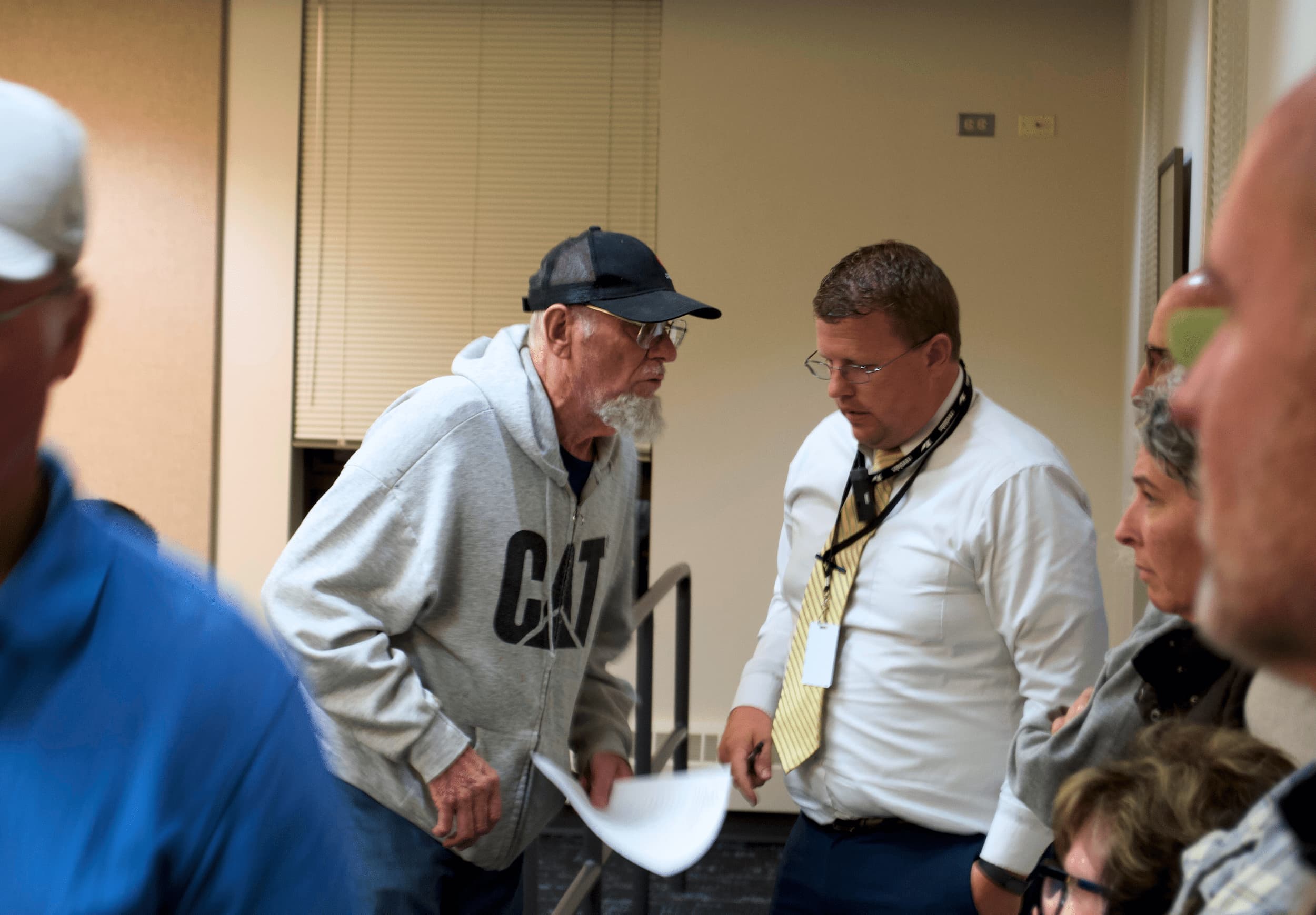
GT Supervisor Jim Wierenga told the crowd that the rates weren’t only raised on them, but the board members also. He assured residents that the board was only raising the money that is needed to keep the system going, explaining that if they have to go to government-subsidized water, the township can’t go back from that.
Wierenga listed the factors and options that were weighed in the decision: “We’re not borrowers…We could put it on the next generation, or two generations which our federal government does… We could do a bond for half or all of it… We can make other people who don’t live here now or maybe aren’t yet born pay for it over time. Or we could have the people that actually live here… who are the ones using the water, pay for the rates at the present… We could raise everybody’s taxes, and then those who are using more water... get the rest of you who weren’t using quite as much to subsidize their habits…”
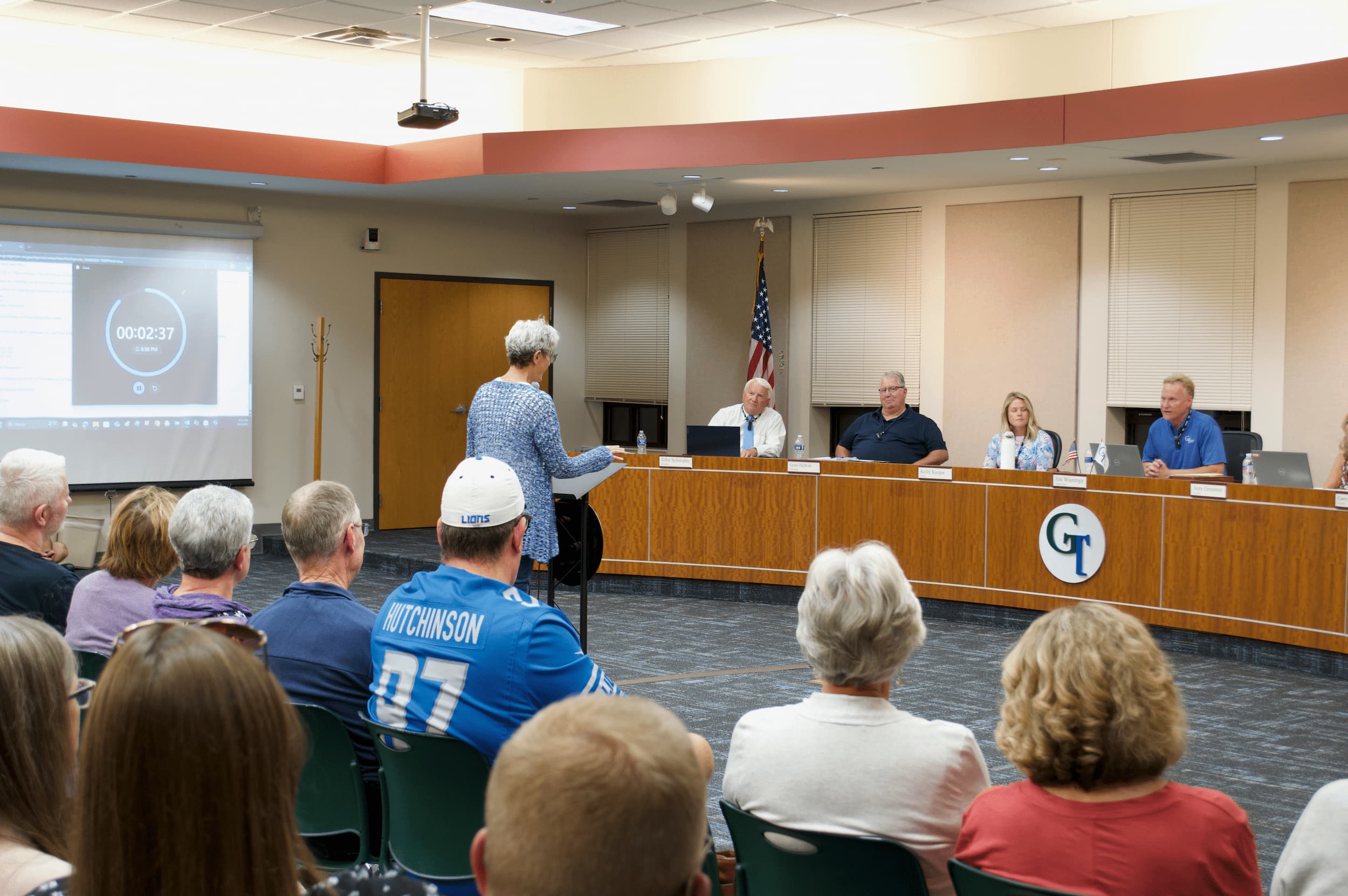
The rate hike could have been eased into, according to Wierenga. He said the rates weren’t raised by previous boards over the last several of years. If they had been, this wouldn’t have been such a significant jump.
Roughly 20 public comments were given in response to the water rates, though the applause for each speaker showed a room full of support. Some public commenters spoke about the impossibility of the usage assigned to them on their bill.
Resident Katrina Brummel knows the exact detail of her water consumption and shared the details to demonstrate the improbability of what she was charged. “We do not have a dishwasher, no laundry machine, or even a shower at the office…On a busy day, it's quick flushes maybe 10 times a day. It is a brand-new water efficient toilet and only uses 1.6 gallons per flush. We have one small strip of grass at the roadside and a small area landscaping where we use soaker hoses to save on further water usage… Our current bill was 95 units. Since I know our exact usage, I calculated what our expected water consumption should be. A 15-gallon day with hoses running one hour a day for 90 days, that should be 1,350 gallons…"
"With our new meter reading," Brummel continued, "it showed 95,000 gallons… This would mean that we would have had to flush our toilets 650 times per day. When we went into the oppose the bill, we were told that the new updated meter does not lie, and we must have a leak somewhere. If this was the case, that would be a leak large enough that a 40,000-gallon pool is overflowing.”
One resident questioned why the June-July-August bill wasn’t prorated if the increase didn’t happen until July. Another resident claimed the costs for the Grandville Sewer Plant and the Lake Michigan Water Treatment plant updates already had been paid for by consumers and wondered whether Georgetown was truly expanding and growing as compared to other townships.
Since the 2026 proposed budget also was on the agenda, some talked about what they saw as wasteful spending that could be applied to the water main. Residents became heated over the possibility of $2 million going toward pickleball courts, to which Wierenga responded the figures in the proposal had not been decided.
Several talked about the rate hike as price gouging and that a bond would be preferred.
Another resident said, “Our water bills have doubled and that doesn’t make sense… You hike this up and vote for it in June for July, right in time for the busiest peak water season with no preparation. I don’t think people would be as mad if they had heard about this for a while.”
And how high of bills are we talking?
Resident Jeff Kollin received a $900 water bill. He asked the board to change the meters. He said that he knows how much he irrigates and that he was billed for 142 units, which was impossible.
Resident Connie Myers said her bill was for $632, adding that her grass is straw, she doesn’t water, and there are only two people in the house. And they have no leaks. Myers said to the board, “While I was looking at my water bill on your website, I decided to look at all of your water bills. All of them under $300. Everybody in here had the $600 to $1,000 water bill.”
Wierenga asked those in attendance to raise their hands if their water bill was close to $1000. Over half of the room raised their hands.
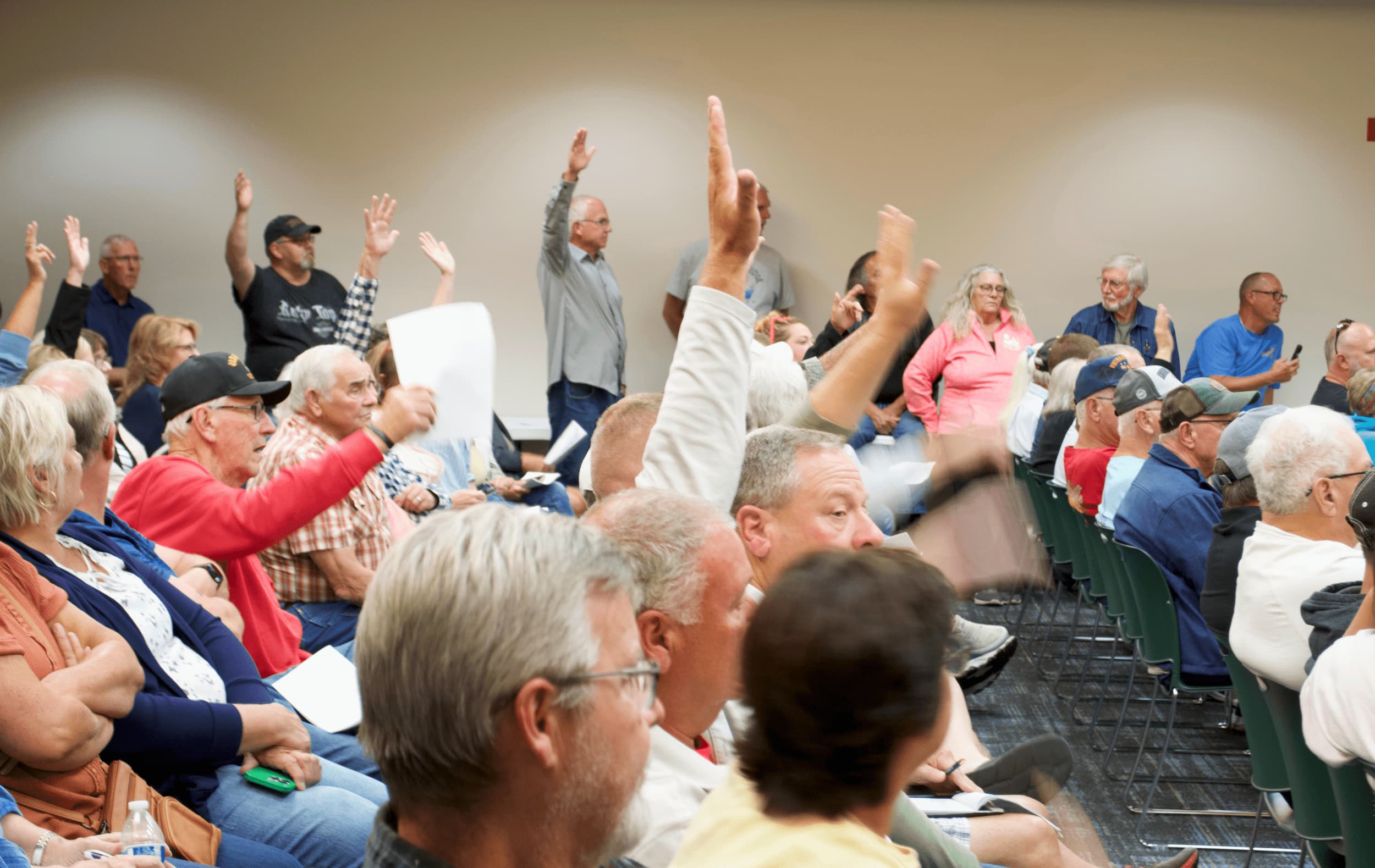
James Kuiper, a local underground piping contractor, said he has worked with nearly every municipality. His pay rate hasn’t gone up 55%, and though the cost of piping has gone up, it has not gone up 55%—nor has the cost of sand to backfill the trenches.
A resident said he was retired but might have to go back to work to pay his bill. “How can a senior citizen keep up with that but go back to work. That's all we can do. And like that lady said back there, if you guys do nothing about it, then maybe you all need to be replaced.”
Once the public comments came to an end, the board had a chance to respond. Clerk Kelly Kuiper said she was surprised by the residents pushing for a bond since that would require those with a well to pay for what others are using. She acknowledged the amount of emotion in the room but said a lot of time and energy had been spent looking into options for the fees.
Other board members commented on how it might be worth looking into the accuracy of the meters for some of those with extremely high bills. There also were suggestions to residents to check for leaks and to consider lowering water usage. Wierenga again addressed that the numbers in the proposed budget for pickleball courts had not been decided.
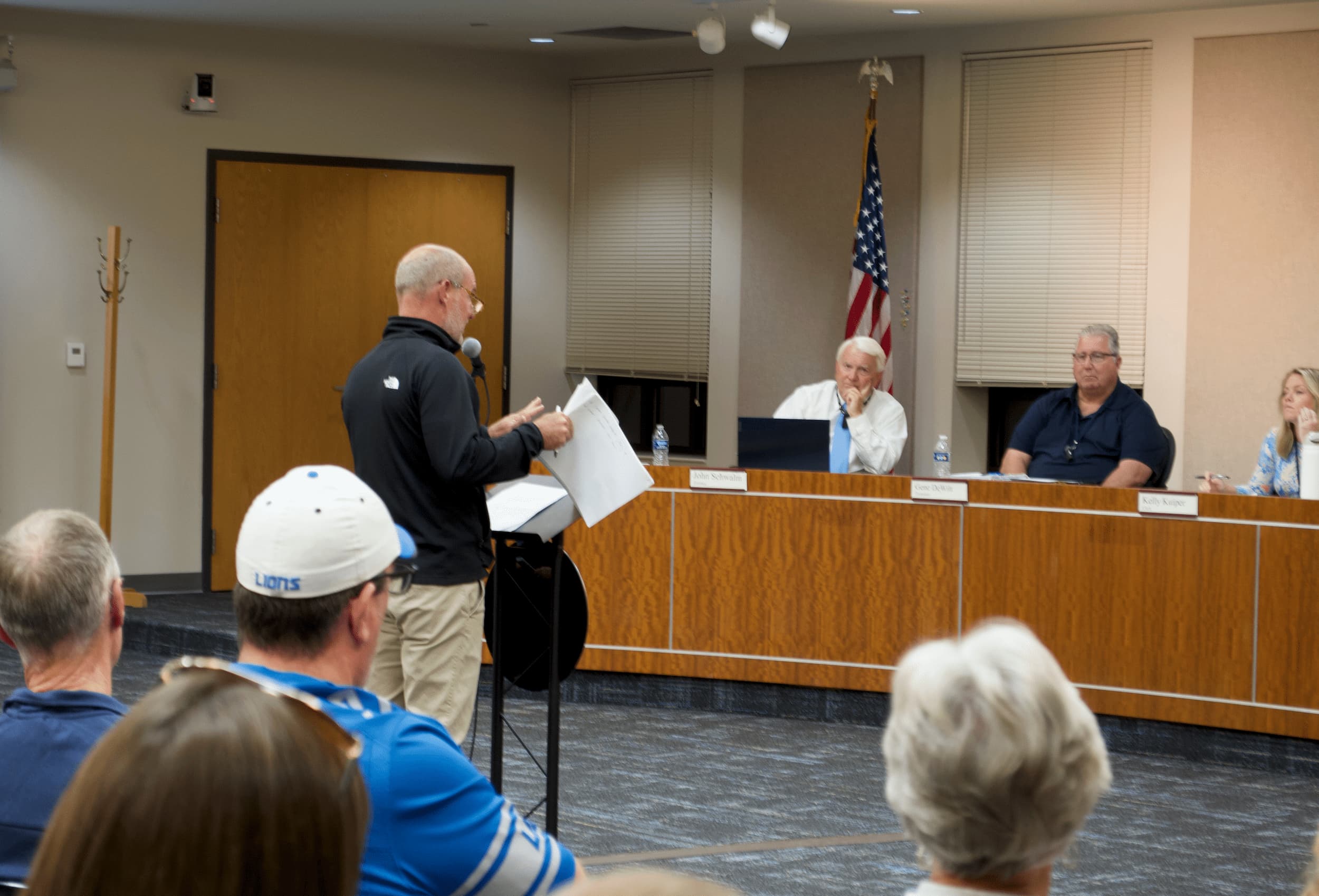
After the meeting, former GT Trustee and Treasurer Michael Bosch, who had given public comment, shared additional thoughts with The Hollander.
“We have never had a watering ban or odd even watering. We’ve never had a supply issue. We don’t have a supply issue, maybe we will in the future. We’ve never hit critical level in our tanks.”
Bosch said that if you raise the water rate, residents will cut back on usage. “They affect each other. Now there’s not a supply issue.”
So, in his opinion, while GT will need upgrades and will need to plan for those, it’s early to make such a jump in rates.
“They’re not going to be able to upcharge enough to cover it,” Bosch said. “They’re going to need to do a bond. If it’s an upgrade that will cover us for the next 15 years or so, then then need to bond if for the next 15 years rather than gouge.”
And for those with wells? “GT put it in their policy years ago that eventually they want to everybody on water and sewer… If your well goes dry, you’ll be hooking up.”
Would it work to separate a bond, only taxing those using the water? It’s done with the homestead and non-homestead exemption as well as items such as streetlights—only those without streetlights are taxed for streetlights.
Bosch agreed that the board could separate a bond if it chose to do so. “They do special assessments attached to different parcels all the time.”
And another concern for Bosch: “If we’re paying for this water, we want the fluoride removed.”
To read the minutes or watch the meeting, visit the Georgetown Township website.
Krista Yetzke is a native of Ottawa County. A jeep-driving, guitar-playing wife, mom, and everyday adventurer, Krista was raised on the love of Jesus, the great outdoors, the arts, the value of frugality, and the beauty of food as medicine.